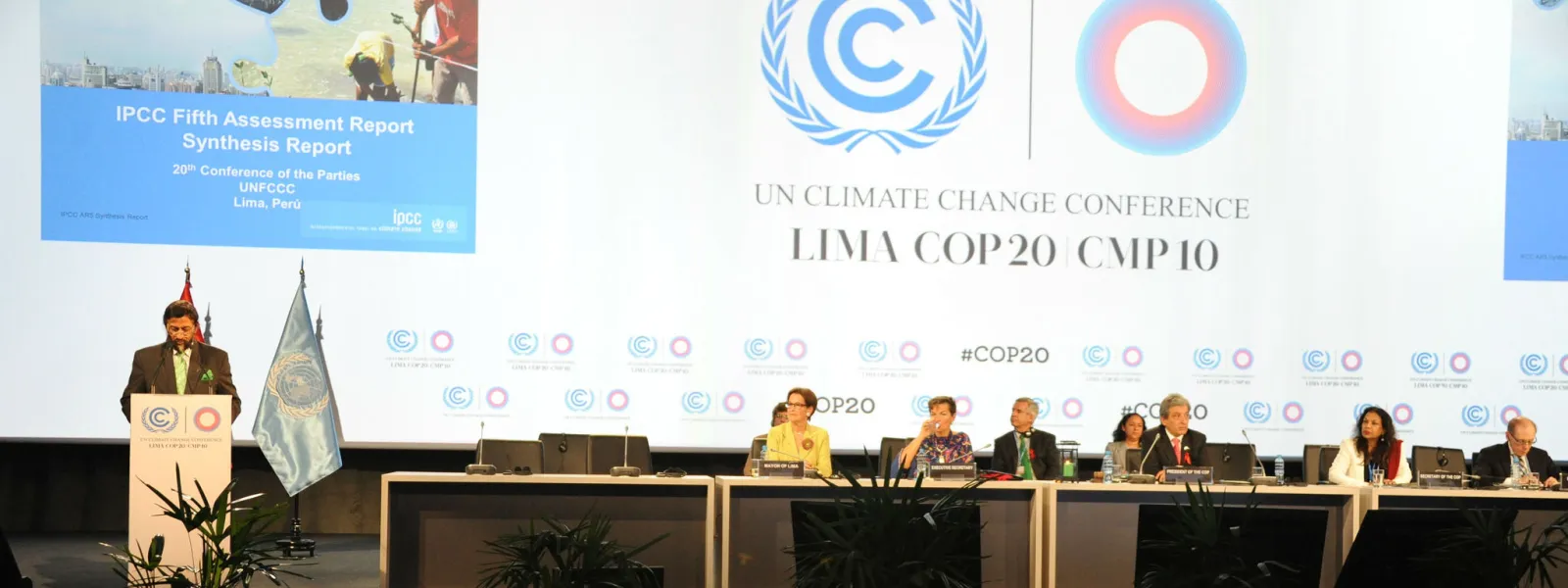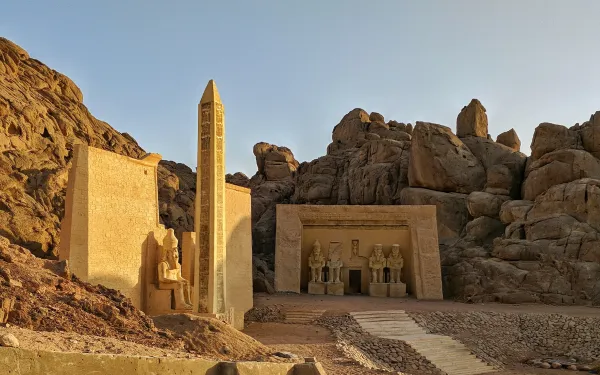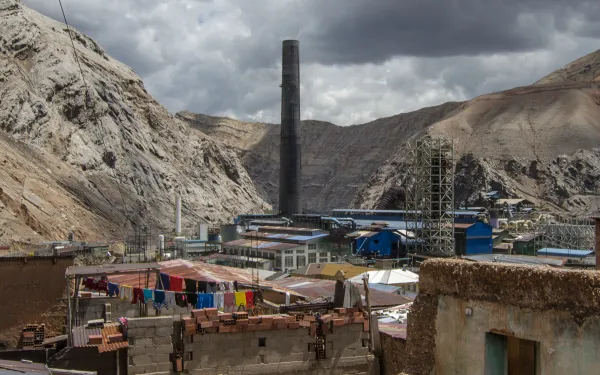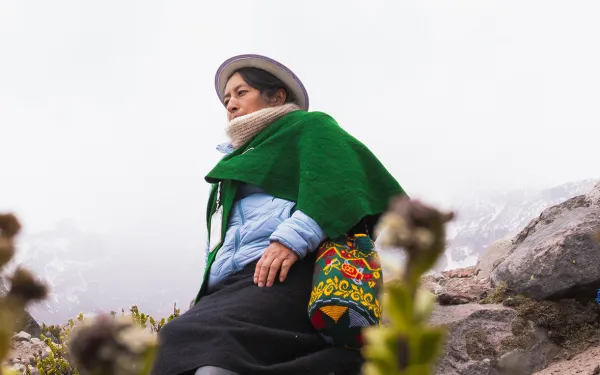
Project
Photo: UNFCCCMonitoring the UN Climate Negotiations
As changes in climate become more extreme, their affects are being hardest felt throughout developing countries. Since 1994, the United Nations Framework Convention on Climate Change has laid out actions to limit the increase of global average temperatures and confront the impacts of climate change.
The States that are Parties to the Convention meet every year in the so-called Conference of the Parties (COP) to review their commitments, the progress made in fulfilling them, and pending challenges in the global fight against the climate crisis.
At COP21 in 2015, they adopted the Paris Agreement, which seeks to strengthen the global response to the climate emergency, establishing a common framework for all countries to work on the basis of their capacities and through the presentation of Nationally Determined Contributions (NDC) that will:
- Limit the increase in global temperatures to 2°C compared to pre-industrial levels and continue efforts to limit it to 1.5°C;
- Increase the capacity of countries to adapt to the impacts of climate change; and
- Ensure that financing responds to the goal of reducing greenhouse gas emissions.
Our focus areas
THE CLIMATE CRISIS AND HUMAN RIGHTS
The climate crisis, due to its transversal character, has repercussions in various fields, geographies, contexts and people. In this regard, the Preamble to the Paris Agreement states that it is the obligation of States to "respect, promote and fulfill their respective obligations on human rights, the right to health, the rights of indigenous peoples, local communities, migrants, children, persons with disabilities and people in vulnerable situations and the right to development, as well as gender equality, the empowerment of women and intergenerational equity."
AIDA at the COP
COP25: Chile-Madrid 2019
At COP25 in Madrid, Spain, we advocated for the inclusion of the human rights perspective in various agenda items. We promoted the incorporation of broad socio-environmental safeguards in the regulation of Article 6 of the Paris Agreement, which refers to carbon markets. We closely followed the adoption of the Gender Action Plan, as well as the Santiago Network, created "to catalyze technical assistance […] in developing countries that are particularly vulnerable to the adverse affects of climate change." We also encouraged the inclusion of ambitious and measurable targets for the reduction of short-lived climate pollutants in the climate commitments of States.
Related projects

Headed for Egypt: What can we expect from COP27?
By Javier Dávalos, Liliana Ávila and Verónica Méndez* The context in which the 27th United Nations Climate Change Conference (COP27) is taking place—from November 6 to 18 in Sharm El-Sheikh, Egypt—is not particularly encouraging. It will not be easy to address the return to intensive use of fossil fuels in several countries—largely motivated by the economic crisis from the pandemic and the conflict between Russia and Ukraine—and the growing reports of increasingly intense and frequent extreme events due to climate change. At the same time, however, the climate movement is growing stronger, along with the need for systemic and concrete changes. COP27 is a new opportunity for nations to respond with action to the demands of their citizens. At the previous COP in Glasgow, leaders decided that countries should adopt more ambitious measures to combat climate change and comply with the Paris Agreement: to limit global warming to far below 2°C, preferably at 1.5°C, above pre-industrial levels. AIDA will participate in COP27 as an accredited observer, along with our allies, to advocate once again for strong progress on climate action. What is it that most encourages us to participate? Below are some of the main advances we expect from COP27. 1. More Ambitious Nationally Determined Contributions (NDCs) NDCs are how national governments communicate and measure the targets they will adopt to confront the climate crisis. In his first report, Ian Fry, the UN Special Rapporteur on the promotion and protection of human rights in the context of climate change, stated that "the global response to reduce greenhouse gas emissions has been wholly inadequate." In the Glasgow Climate Pact, countries reaffirmed their commitment to limit the global average temperature increase to 1.5°C and to increase the ambition of their NDCs. It is therefore imperative that all countries update their NDCs (only 24 have done so), so that they ensure the inclusion of concrete and ambitious measures and actions. Doing so ensures that countries will continue to make progress and comply with their common, but differentiated, responsibilities as established by the Paris Agreement. 2. Financing for Loss and Damage: Now! Climate change is generating widespread loss and damage. Measures to mitigate and adapt to these losses are late in arriving, leading to a global human rights crisis. States must address this situation in a committed manner. Special Rapporteur Ian Fry notes that there is a need to create a financing mechanism to help people recover from climate change impacts that are beyond their capacity to adapt. In Glasgow there was no consensus on the creation of such a mechanism. The demand for COP27 is to include the issue in the discussion and to push for the adoption of a financing mechanism with strict operating criteria, a human rights perspective, and clear accountability mechanisms. It is also vital to have measurable results on the working of the Santiago Network on Loss and Damage, created at COP25. Demands regarding loss and damage will become an increasingly relevant issue. A strong climate movement, driven mainly by the countries of the South, is arriving in Egypt to ensure progress. 3. Promoting a Just Energy Transition The Intergovernmental Panel on Climate Change (IPCC), in its sixth report on mitigation, indicated that the reduction of greenhouse gas emissions requires significant and urgent transitions, including a substantial reduction in the overall use of fossil fuels. This will perhaps be one of the most debated issues at the conference. Unfortunately, following the Russian invasion of Ukraine, countries that had made progress in the decarbonization of the energy sector have increasingly turned back to fossil fuel production in the face of high energy prices. In addition, there is increased pressure on Latin America to continue exporting fossil fuels. Energy transition is not only an urgent necessity, however, it is also an opportunity to promote justice and equity for the people and species that inhabit the planet. We must move toward decarbonization but we must do so in a just manner, with a comprehensive, democratic and pluralistic transformation process. At COP27, it’s expected that countries will be evaluated on the progress of their commitments to phase out coal-fired power generation and fossil fuel subsidies, as well as their progress toward global reduction of methane emissions. 4. A Conference Free of Corporate Control and Available to All Voices The path to climate justice and many of the issues being addressed at the climate conferences require a diversity of voices, many of which face significant barriers to being heard. Added to this is a disproportionate presence of industries and corporations with agendas aimed directly at defending business interests over the common good and the planet. This creates serious challenges toward achieving more ambitious progress. Rapporteur Fry rightly pointed out that conference venues "are increasingly expensive and difficult for indigenous peoples and civil society organizations to attend." Civil society has expressed its firm opposition to the fact that the most polluting actors are both judge and jury in the matter. The specific demand is for a review of the sponsorship guidelines so that climate conferences do without the contributions of major polluters and so that, starting with COP27, there is a truly equitable inclusion of all actors, especially those who are on the front line of the climate crisis and suffer directly from its consequences. The climate struggle is here to stay. It is a growing and vibrant movement that will not stop until real commitments are made. According to the IPCC, COP27 keeps open the "window of opportunity to ensure a livable and sustainable future." It’s the space where actors converge to defend their interests with that purpose in mind. Governments and other participants must see the climate conferences as a space to advance towards climate justice, to avoid reaching a point of no return, and to put people and the planet at the center of the climate conversation. *Javier Dávalos is coordinator of AIDA's Climate Program, Liliana Ávila is coordinator of the organization's Human Rights and Environment Program, and Verónica Méndez is an attorney with the Climate Program.
Read more
With La Oroya case, the Inter-American Court may set a key precedent for protecting a healthy environment in Latin America
On October 12 and 13, the international court will hear the case of people affected by toxic pollution in La Oroya, Peru. Beyond reestablishing the rights of the victims, the court’s eventual decision marks an historic opportunity to strengthen the protection of the right to a healthy environment in the region and to encourage States to adequately supervise corporate activities. Montevideo, Uruguay. On October 12 and 13, the Inter-American Court of Human Rights will hear the case of residents from La Oroya, Peru, whose fundamental rights have been violated for decades due to heavy metal contamination from a metal smelting complex. The hearing will take place during the 153rd Session of the Court, to be held October 10-21 in Montevideo, Uruguay. Last October, 15 years after the international lawsuit against the Peruvian State was filed, the Inter-American Commission on Human Rights—in it’s decision on the merits of the case—established the Peruvian government’s international responsibility in the violation of the human rights of the residents of La Oroya, and referred the case to the Inter-American Court. At the hearing next week, as part of the process of drafting their ruling, the judges of the court will hear from witnesses, experts, and victims, as well as from State representatives. As organizations that have legally represented and accompanied the group of victims since the beginning of the case, the Interamerican Association for Environmental Defense (AIDA) and the Pro Human Rights Association (APRODEH) will bring to the court strong arguments, supported by legal and scientific evidence, to defend the rights of the affected people. After a decades-long search of justice, the case is important not only for the community of La Oroya, but for all people affected by corporate activities across the continent. In addition, the case is representative of a serious political, social and environmental situation that has not been considered by national, regional and international politics. The current conditions prevent the citizens of La Oroya from having healthy prospects for the future. There exists a real need for justice and mobilization to generate a strong recognition of economic and environmental alternatives for the direct and indirect victims. Liliana Avila, senior attorney at AIDA, explains the context of the case and emphasizes the importance of a favorable and forceful decision by the court: "The La Oroya case before the Inter-American Court puts an end to more than 20 years of waiting in the search for justice and reparations for those whose lives were drastically changed by historic exposure to toxic contamination. It is a milestone for the Inter-American Human Rights System because it will be one of the first cases to centrally address the indivisible relationship between a healthy environment and other fundamental human rights such as life, health and personal integrity. It constitutes a unique opportunity to set a regional and global precedent for the protection of the right to a healthy environment and compliance with the obligations of States to adequately supervise corporate activities, as well as to guarantee the special protection of children, girls, women, the elderly and other vulnerable groups.” Gloria Cano Legua, executive director of APRODEH, refers to the urgency of a decision that grants justice and reparation to the people of La Oroya: "The victims have had to see how the State, through various governments, has disregarded its obligations, while their health problems have worsened. The indifference and sometimes hostility with which they have been treated has offended their dignity". PReSS CONTACTS: Víctor Quintanilla (AIDA), [email protected], +525570522107 Gloria Cano Legue (APRODEH), [email protected], +51 964 809 193 Christian Huaylinos Camacuari (APRODEH), [email protected], +51 959 789 232
Read more
Presentes: Here and now for climate justice
Hope, too, needs a space when we talk about the climate crisis. While it’s true that humanity is facing our greatest collective challenge, it’s also true that there are people, communities, and organizations taking action, right now, to cocreate a better future. We cannot deny that we are already living with the impacts of the climate crisis. Yet we must speak honestly and urgently about them, without paralyzing ourselves in the process. Sharing information is a means to understanding our planet and creating meaningful conversations so that today, in the present moment, our societies can begin to build a more just tomorrow. Presentes was born as a collective and collaborative effort to change the narratives around climate justice. It’s a Latin American alliance that seeks to bring the climate conversation to a wider audience while simultaneously strengthening alliances among those already working for the cause. The challenge lies in demonstrating that when we talk about the energy transition –a fundamental step towards a better future– we must also talk about respecting human rights and the rights of nature, and caring for all forms of life on this planet. What better way to show this than by telling the stories of those working for it every day? Presentes is coordinated by AIDA, with the goal of bringing together civil society organizations, local communities, environmental defenders and citizens from across Latin America. Toward a better tomorrow What can we do to address the climate crisis? What is clean energy? How can we build a more just world for all beings, and what does that look like? There are some of the questions we’ll be exploring, together, through the Presentes platforms. Our goal is to extend this conversation to people from across Latin American, in all phases of their own climate journey. As a starting point, the founding organizations signed a manifesto recognizing that, to achieve a society with climate justice, it is essential to recognize our role in this new environmental reality, and make way for a just change that leaves no one behind, that is fueled by new forms of energy, and that responds to the call of those people who, with dignity and determination, continue to fight for the defense of life on Earth. View this post on Instagram A post shared by Presentes (@presentesorg) These are the pillars of Presentes and the point from which we can, from our own focuses and starting points, begin to visualize a better future for all the beings who live on this Earth. Join your voice to Presentes! Each participant, whether an organization or an individual, helps to enrich the ecosystem of sharing and solidarity that is forming around Presentes. Beginning from where you are now, you can: Add your organization to the alliance. By doing so, you’ll work with the diverse groups that form the Presentes, amplify your own organization's work, and receive a biweekly digital newsletter with valuable information to strengthen your communication efforts. Join the conversation in our WhatsApp group to receive free content to learn more about the climate crisis and how we confront it, together. Follow Presentes on Instagram and Facebook and help the content reach beyond our network, into yours. Because now is the only time there is, it’s the time to be present.
Read more